
In the instant that we catch sight of its silhouette, the raptor launches from its perch and drifts effortlessly through the tangled canopy. Moise and Eugene Laodany exchange glances, then look quickly at our group of scientists, realising that we hadn’t quite locked our binoculars onto this elusive bird. Fortunately for us, these two Malagasy field technicians have been working on this particular species for most of their lives. The pursuit continues…
As quietly as humanly possible, we clamber over fallen logs and under tangles of vines. Our Malagasy colleagues seem to have a sixth sense when it comes to our target and very soon they have relocated it. This time luck is on our side. Our binoculars are trained on one of the rarest raptors in the world: the Madagascar Serpent Eagle. Cameras fire offshots in rapid succession. Just as quickly, the young bird lifts off and disappears into the dense montane rainforest. But now we’re satisfied.
How were we able to find and photograph one of the rarest and most secretive raptors in the world? Well, perhaps we cheated just a little. The young bird we followed was a recent fledgling and as part of a Peregrine Fund research project it had been fitted with a radiotelemetry tracking device. Each day the field technicians head out to log the bird’s position as they amass critical information about its distribution, range size and ecology.
To understand how we found our-selves in such an extraordinary position we must step back in this story and meet the master of Madagascar’s rarest birds: Dr Lily Arison René de Roland, or Lily as he prefers to be known. Lily has been the national director for The Peregrine Fund’s Madagascar Project for the past 25 years. He began as the fund’s only local employee and now manages a staffof 38 across multiple projects in Madagascar.
This story is from the March - April 2020 edition of African Birdlife.
Start your 7-day Magzter GOLD free trial to access thousands of curated premium stories, and 9,000+ magazines and newspapers.
Already a subscriber ? Sign In
This story is from the March - April 2020 edition of African Birdlife.
Start your 7-day Magzter GOLD free trial to access thousands of curated premium stories, and 9,000+ magazines and newspapers.
Already a subscriber? Sign In

EXPLORING NEW HORIZONS
Keith Barnes, co-author of the new Field Guide to Birds of Greater Southern Africa, chats about the long-neglected birding regions just north of the Kunene and Zambezi, getting back to watching birds and the vulture that changed his life.

footloose IN FYNBOS
The Walker Bay Diversity Trail is a leisurely hike with a multitude of flowers, feathers and flavours along the way.
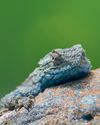
Living forwards
How photographing birds helps me face adversity
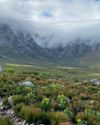
CAPE crusade
The Cape Bird Club/City of Cape Town Birding Big Year Challenge
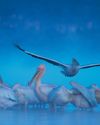
water & WINGS
WATER IS LIFE. As wildlife photographer Greg du Toit knows better than most.
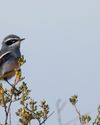
winter wanderer
as summer becomes a memory in the south, the skies are a little quieter as the migrants have returned to the warming north. But one bird endemic to the southern African region takes its own little winter journey.

when perfect isn't enough
Egg signatures and forgeries in the cuckoo-drongo arms race

Southern SIGHTINGS
The late summer period naturally started quietening down after the midsummer excitement, but there were still some classy rarities on offer for birders all over the subregion. As always, none of the records included here have been adjudicated by any of the subregion's Rarities Committees.

flood impact on wetland birds
One of the features of a warming planet is increasingly erratic rainfall; years of drought followed by devastating floods. Fortunately, many waterbirds are pre-adapted to cope with such extremes, especially in southern Africa where they have evolved to exploit episodic rainfall events in semi-arid and arid regions. But how do waterbirds respond to floods in areas where rainfall - and access to water - is more predictable? Peter Ryan explores the consequences of recent floods on the birds of the Western Cape's Olifants River valley.
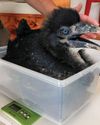
a star is born
It’s every producer’s dream to plan a wildlife television series and pick the right characters before filming.